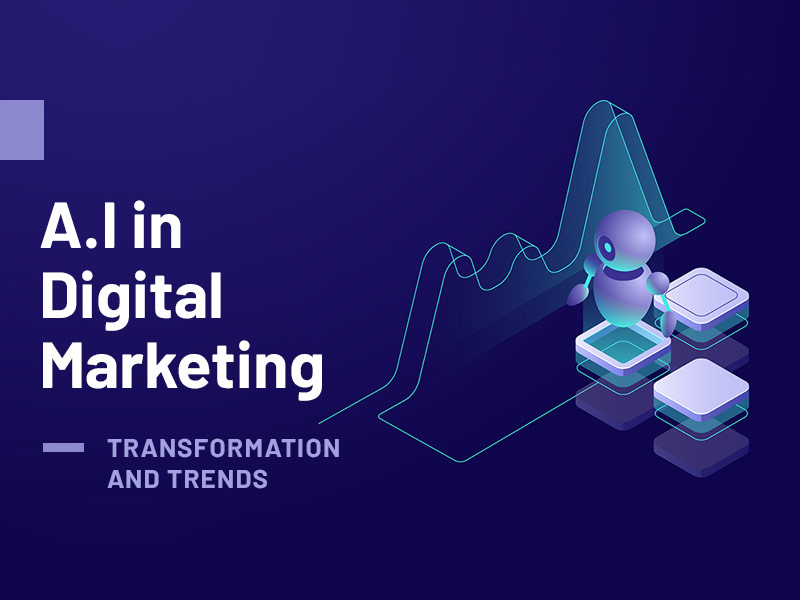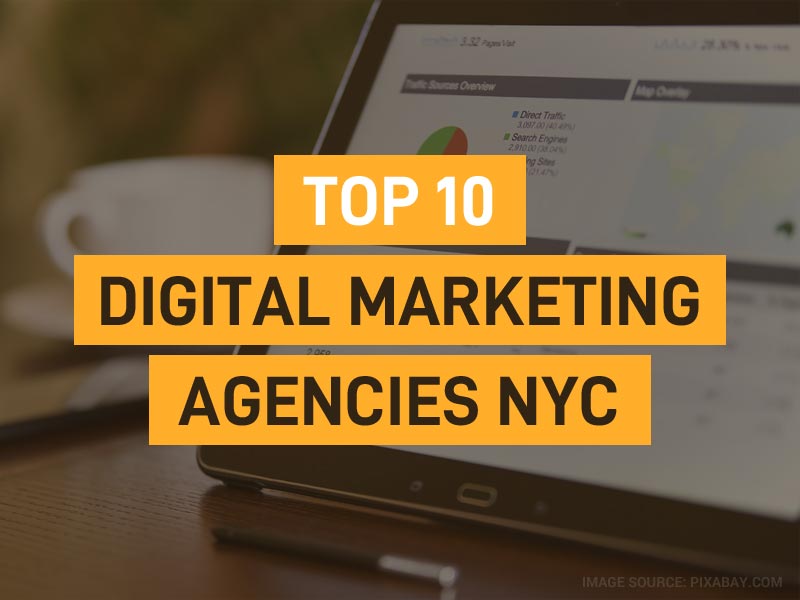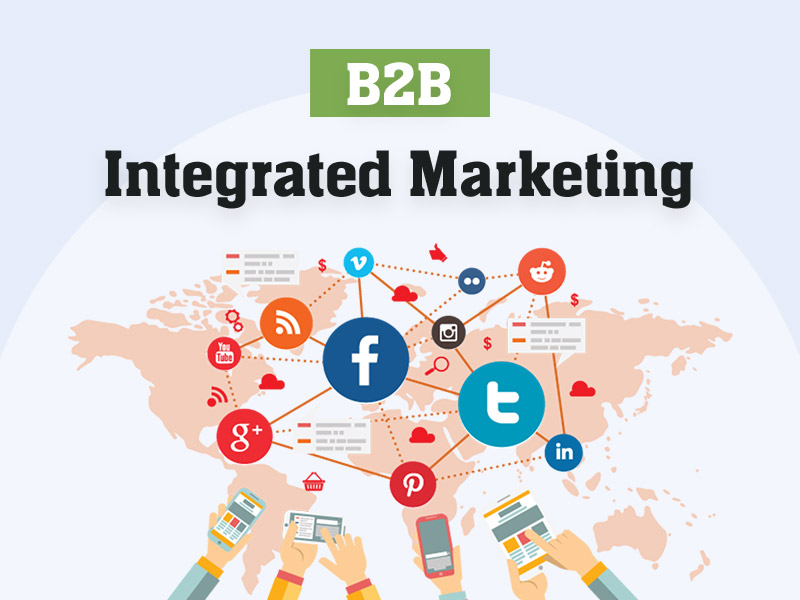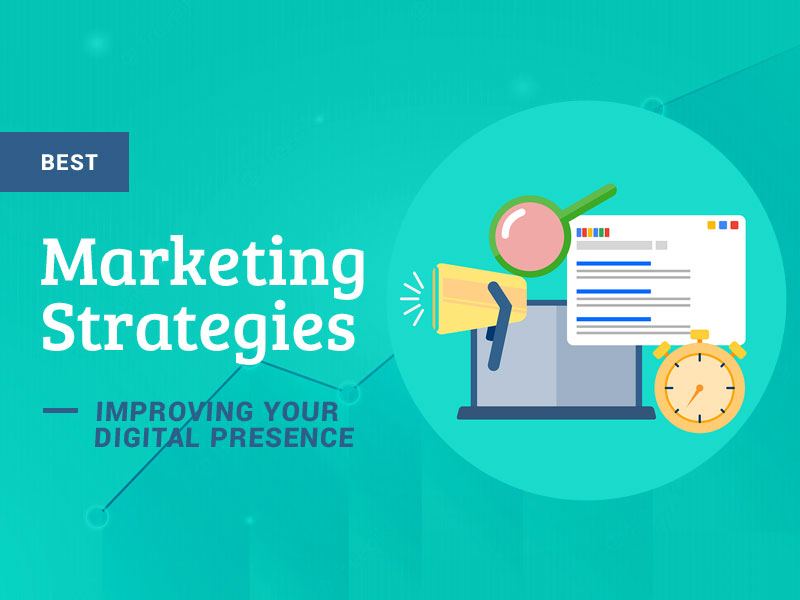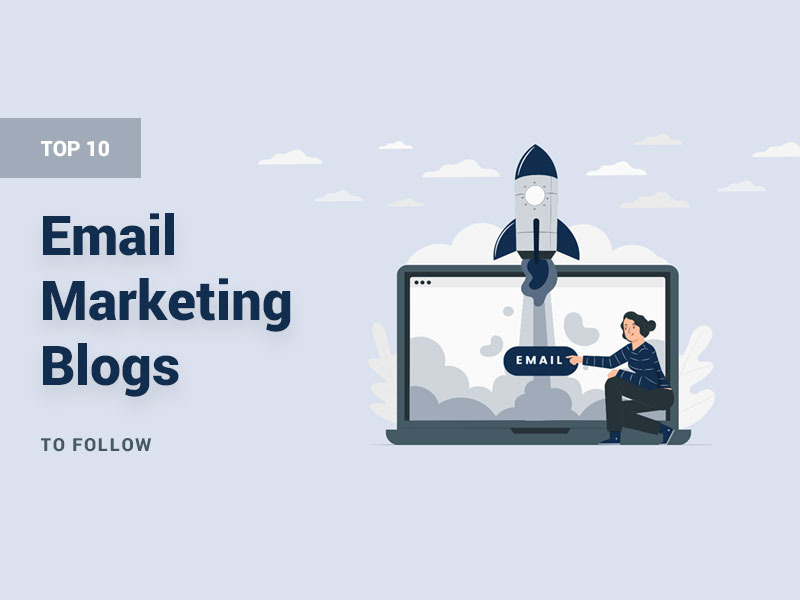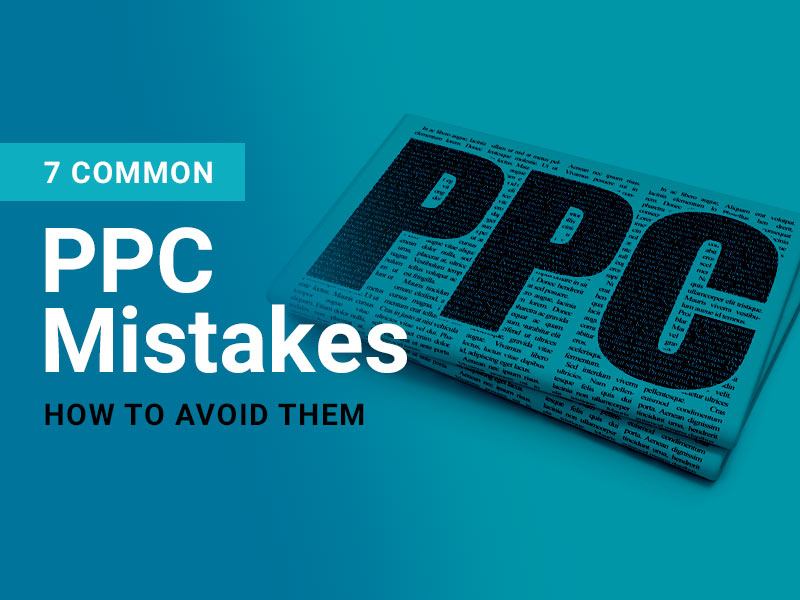In the whirlwind of digital evolution, a concept has emerged to become the tour de force in numerous industries: Artificial Intelligence (AI).
Nowhere is its influence more palpable than in digital marketing.
Over the past decade, AI’s ingenious blend of machine learning and data analysis has steered transformations in digital marketing that were once the stuff of sci-fi films.
Understanding AI in Digital Marketing
Artificial Intelligence, at its core, is about machines emulating human intelligence.
In digital marketing, AI translates to algorithms and software that can analyze, learn, and react to data with human-like decision-making abilities.
AI’s role in digital marketing is monumental, and it revolves around two primary functions:
Personalizing user experience by tailoring content, recommendations, and interactions to the individual user.
Optimizing marketing campaigns by analyzing user data and making informed predictions about user behavior.
The dynamic process of learning and adapting allows AI to continually refine and enhance its performance in these areas, leading to more efficient marketing strategies and deeper customer engagement.
To better grasp how AI personalizes the user experience, consider the recommendation engines employed by e-commerce giants such as Amazon and Netflix.
These AI-powered systems analyze data about a user’s browsing and purchase history, correlating that with data from similar users to generate a personalized list of product or content recommendations.
This level of personalization increases the chances of a user making a purchase or spending more time on the platform, thereby driving business growth.
Similarly, AI also transforms how we optimize marketing campaigns. Using machine learning, AI algorithms sift through vast amounts of user data – from demographic information to browsing behavior – identifying patterns and trends that may escape human analysis.
This allows marketers to segment their audience more effectively, target their advertising with laser precision, and forecast future trends that can inform strategic decisions.
AI’s predictive analytics capabilities are another game-changer for digital marketing. Predictive analytics involves using historical data to forecast future events.
In digital marketing, AI uses this technique to predict future customer behavior, market trends, and campaign performance.
This foresight enables marketers to stay one step ahead of the curve, optimizing their strategies in real-time for maximum impact.
Yet another noteworthy application of AI in digital marketing is automation. AI-powered automation tools can handle various tasks, from scheduling social media posts at the optimal time to sending personalized emails to thousands of customers simultaneously.
This streamlines marketing operations and reduces the likelihood of human error.
In a nutshell, the role of AI in digital marketing extends far beyond data analysis.
By personalizing user experiences, optimizing marketing campaigns, forecasting trends, and automating routine tasks, AI is creating a new digital marketing paradigm centered on efficiency, personalization, and data-driven decision-making.
As AI continues to evolve, we can expect its role in digital marketing to become even more significant, transforming how businesses connect with customers and drive growth.
Historical Overview of AI in Digital Marketing
AI’s integration into digital marketing has been a game-changer.
Seeing how this technology has evolved from fundamental data analysis to sophisticated predictive modeling is fascinating.
AI has fundamentally transformed digital marketing by enabling businesses to understand their audiences on a micro-level and create highly targeted campaigns.
The marriage of AI and digital marketing took time to happen. It’s the product of a series of technological advances, market demands, and visionary innovations that have unfolded over the last few decades.
To appreciate AI’s profound impact on digital marketing today, it’s helpful to trace back the milestones of this transformational journey.
The concept of AI has existed since the mid-20th century, but its application in marketing took some time to materialize.
The advent of the internet in the 1990s opened the door to a new world of data. Early internet advertisers collected this data manually to tailor their messages, a rudimentary form of personalization.
But as the internet grew, this manual process became untenable. The need for automation was clear, and the stage was set for AI to enter the marketing arena.
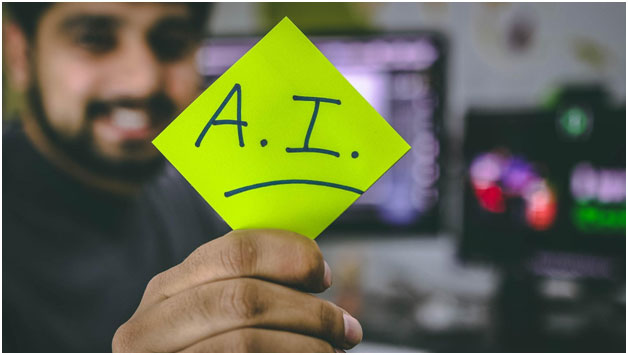
In the early 2000s, AI began to take its first tentative steps into digital marketing. Businesses started to use simple AI algorithms to analyze consumer data and automate email marketing campaigns.
The technology was primitive by today’s standards, but the impact was undeniable. Businesses could simultaneously send personalized emails to thousands of customers for the first time, boosting engagement and ROI.
The 2010s marked a pivotal period for AI in digital marketing. With the explosion of social media and mobile internet usage, the volume of consumer data skyrocketed.
Machine learning, a subset of AI, became critical for making sense of this data avalanche.
AI-driven tools started to offer more advanced services, such as predictive analytics, customer segmentation, and programmatic ad buying.
Meanwhile, the rise of e-commerce platforms like Amazon and Alibaba spurred the development of AI-powered recommendation engines.
These platforms leveraged AI to analyze user behavior and recommend products, significantly boosting their conversion rates and setting a new standard for personalized marketing.
AI has become even more sophisticated and pervasive in the past few years. Today, AI powers everything from SEO strategies to chatbots to content creation.
It’s driving a new era of hyper-personalized, data-driven marketing that was unimaginable just a decade ago.
Looking back, the journey of AI in digital marketing has been one of rapid innovation and adaptation.
As we stand on the threshold of even more significant AI advancements, we can appreciate how far we’ve come and look forward to where we’re headed.
AI Technologies Driving Transformation in Digital Marketing
Various AI technologies are shaping digital marketing, including chatbots, AI-powered SEO, predictive analytics, programmatic advertising, and personalized recommendations.
- Chatbots: Chatbots have revolutionized customer service. They provide instant, personalized responses, improving customer engagement and satisfaction.
- AI-Powered SEO: AI has optimized SEO strategies, making keyword optimization more precise and effective. For instance, if you’re learning how to create a website from scratch, AI can predict relevant keywords for your search based on past user behavior.
- Predictive Analytics: AI predictive analytics can anticipate customer behavior, enabling businesses to be proactive and design tailored marketing campaigns.
- Programmatic Advertising: Programmatic advertising uses AI to automate ad buying, ensuring ads are placed where they will be most effective.
- Personalized Recommendations: AI provides customized content and product recommendations, improving customer experience and conversion rates.
Case Studies: Successful Implementations of AI in Digital Marketing
Successful AI implementations in digital marketing are plenty, but let’s consider two notable examples:
- 1. Netflix: By using AI for personalized recommendations, Netflix reportedly saves $1 billion annually on customer retention.
- 2. Coca-Cola: Utilizing AI-driven chatbots, Coca-Cola provides instant, personalized customer service, increasing customer engagement and satisfaction.
These success stories highlight AI’s practical, transformative impacts in digital marketing.
The Confluence of AI and Social Media
The intersection of AI and social media marketing heralds a new era of hyper-connectivity. Social media, a potent tool for brand exposure and consumer engagement, is being revolutionized by AI’s capabilities.
Social media platforms generate an enormous volume of user data daily. To harness this data, companies are increasingly turning to AI.
Machine learning algorithms analyze user interactions, comments, likes, shares, and emojis to gain insights into user behavior, preferences, and sentiment.
Take, for example, the task of scheduling posts. AI tools can now analyze past post performance to determine the optimal time for publishing content, ensuring maximum engagement.
Integrating AI into social media analytics provides unprecedented insight, allowing brands to fine-tune their strategies based on real-time data.
AI is also transforming social listening, monitoring social media channels for mentions and conversations related to a brand. Advanced AI algorithms can sift through millions of online discussions, identifying trends, gauging sentiment, and flagging issues faster than any human team could.
Ultimately, the marriage of AI and social media offers brands the chance to stay ahead of trends, respond rapidly to changes, and engage with their audience in more personalized and meaningful ways.
By leveraging AI’s powerful analytics and automation capabilities, brands can turn their social media channels into robust growth and customer engagement engines.
AI Ethics in Digital Marketing
As AI becomes increasingly prevalent in digital marketing, ethical considerations have emerged.
As digital marketers, we are responsible for respecting user privacy, ensuring transparency, and fostering trust in the age of AI.
One of the primary ethical considerations is data privacy. With AI’s ability to gather and analyze massive amounts of data comes the responsibility to protect that data.
Marketers must ensure that user data is collected and used responsibly, securely, and with express user consent.

Transparency is another significant aspect of ethical AI use. This involves clearly explaining to users how their data is used and how AI influences their online experiences.
Companies that are transparent about AI can foster trust and build stronger customer relationships.
Moreover, AI systems must be designed to avoid bias. AI algorithms are only as good as the data they’re trained on, and if that data is biased, the AI’s decisions could be too.
It’s, therefore, crucial to use diverse, representative datasets to train AI systems and regularly check them for bias.
The ethics of AI in digital marketing is a complex and evolving issue. However, by prioritizing data privacy, transparency, and fairness, marketers can use AI to respect users and strengthen brand reputation.
The Democratization of AI in Digital Marketing
AI, once the exclusive domain of tech giants, is becoming democratized. Thanks to technological advances and accessibility, small and medium-sized enterprises (SMEs) can leverage AI in their digital marketing strategies.
There’s a surge of affordable, user-friendly AI tools that empower SMEs to compete with larger companies.
These tools cover a range of marketing functions, from AI-driven SEO tools that optimize website content to chatbots that enhance customer service.
This democratization leads to an even playing field where businesses of all sizes can deliver personalized experiences and data-driven marketing campaigns.
SMEs can use AI to gain insights into their audience’s behavior and preferences, allowing them to compete with larger companies regarding customer understanding and engagement.
Moreover, democratized AI allows SMEs to automate many marketing tasks, freeing valuable time for strategic thinking and creative work.
By automating tasks like ad placement, email marketing, and data analysis, SMEs can focus on the high-level work humans do best.
The democratization of AI in digital marketing is a game-changer for SMEs.
Future Trends: AI and the Next Big Things in Digital Marketing
As we look toward the future, it’s clear AI will continue to shape digital marketing trends.
Yet, like any transformative technology, it presents both challenges and opportunities.
The future of AI in marketing will likely involve more personalized, predictive, and integrated marketing solutions. Still, companies will also need to address issues like data privacy and the growing need for human-machine collaboration.
In the landscape of future marketing, a seismic shift steered by AI is on the horizon.
Digital marketing experts envision a world where AI extends its tendrils deeper into personalization, making the term ‘hyper-personalization’ a standard business practice.
Today, personalization is about adjusting communication and offerings based on individual customers’ known preferences and behavior.
Tomorrow, AI will push this even further, diving deep into vast data pools to deliver finely-tuned, dynamic, and real-time personalized experiences.
Instead of targeting segments, we will target individuals, providing a wholly unique customer journey for every user, almost as if every interaction was explicitly human-crafted for them.
Beyond personalization, they foresee AI playing an even more integral role in content creation. It’s no secret that AI is used to churn out simple content pieces.
However, with the relentless advances in natural language processing and machine learning capabilities, AI is on the cusp of creating more engaging, contextually-aware, and high-quality content that could pass for human-written.
The machine-written blogs, social media posts, and even video scripts of tomorrow could resonate with audiences as profoundly as human-authored content, enabling businesses to scale their content marketing efforts exponentially while maintaining high quality and relevance.

Programmatic advertising, which AI has already revolutionized, will continue to evolve. Shortly, AI will automate the ad-buying process and predict where ads will perform best with uncanny accuracy.
AI will consider past performance and factors, including real-time audience behavior, ongoing trends, and more.
This will result in highly effective ad placements that reach the right people, at the right time, on the right platform, driving remarkable returns on ad spend.
One of the most exciting trends is the fusion of AI and augmented reality (AR) in marketing.
This powerful combination can provide immersive, interactive customer experiences that revolutionize how products and services are showcased and sold.
Imagine a world where customers can virtually try products or experience services before purchasing from the comfort of their homes.
AI will be at the heart of these AR experiences, analyzing real-time user responses to adapt and personalize the experience continually.
Conclusion
As we’ve journeyed through the transformative role of AI in digital marketing, it’s evident this technology has become an indispensable tool for marketers.
From chatbots to AI-driven SEO and predictive analytics, AI offers many opportunities to personalize and optimize marketing efforts.
Embracing these AI-driven innovations will be critical for businesses to remain competitive in the ever-evolving digital marketing landscape.
The future is here, and it’s powered by AI.
